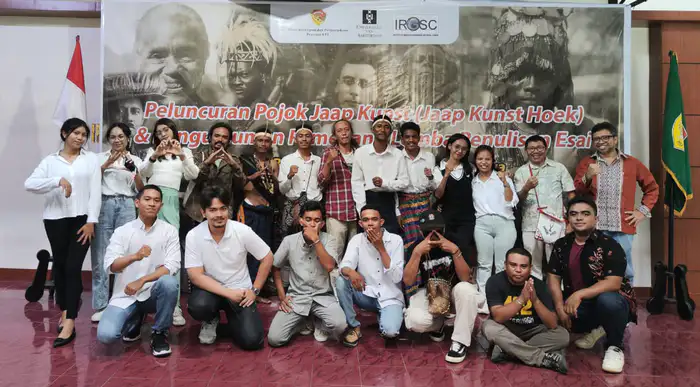University of Amsterdam Repatriates Colonial Audio and Film Archives to Indonesia
Last week, a large number of music recordings from the former Dutch East Indies were transferred digitally to the Indonesian province of East Nusa Tenggara (NTT) by the University of Amsterdam (UvA). It was a historic moment, according to musicologist Barbara Titus, who curates the Jaap Kunst Collection at the UvA. ‘These musical expressions, that were virtually unavailable for a century due to their residence in the Netherlands, are now accessible again to source communities there.’
This concerns hundreds of digitised sound recordings, film footage and photos from the islands of Flores, Sumba, Alor, Timor and Kisar. The recordings were made from 1919-1934 by musicologist Jaap Kunst (see box), who is known as the founder of ethnomusicology.
The return of the recordings to Indonesia follows the international research project DeCoSEAS (Decolonizing Southeast Asian Sound Archives), which was aimed at providing access to colonial sound collections from Southeast Asia that are located in Europe. Within the context of that project, Barbara Titus and fellow researcher meLê yamomo have made the Jaap Kunst Collection available online in the past few years. Now, parts of the collection have also been made accessible to the public in the communities where the recordings were originally made.
About Jaap Kunst and the collection
Jaap Kunst, originally a lawyer and musician, began recording local music during a trip to the former Dutch East Indies together with his wife Katy Kunst-Van Wely. In 1930, he was appointed government musicologist by the Dutch colonial government, which entailed documenting the local music and collecting musical instruments. The collection that he built initially ended up at the KIT Royal Tropical Institute in Amsterdam, where Kunst worked for several decades as a curator. Following his death in 1960, his widow sold the collection to the UvA, where Kunst was appointed as professor.
Return to the current generation
‘I really see this as a historic moment. These musical expressions, that were virtually unavailable for a century due to their residence in the Netherlands, are now accessible again to source communities there’, says Titus. ‘I am very happy that this collection can now be returned to the current generation. This transfer is a first step, which will be followed by further attempts to return the collection, physically and permanently, to source communities in Indonesia. We owe a lot of thanks in this regard to our local partner, the Institute for Resource Governance and Social Change (IRGSC). Director Dominggus Elcid Li – who will be a guest researcher at the UvA in 2025 – and Head of Arts and Culture, Ragil Sukriwul were the driving force behind the transfer.’
Festive opening
The collection is now available to visitors in the NTT Regional Library in the provincial capital Kupang on West Timor. In order to make the archive more accessible, the Decolonial Futures Research Priority Area of the UvA donated two computers with sound recordings and videos. The space set up for the collection in the library was festively opened on 24 September, in the presence of Indonesian and Dutch partners of the project, as well as musicians, dancers and students.
Theatre activist Decky Seo stated that restitution of the collection was much needed. ‘We find it very helpful, because this collection of sound, dance and photos makes it easier for us to reconstruct something from the past, without having to guess, because there are audio and visual traces.’ Stef de Rozari, Head of Archive Management at the library, is also happy with the return: ‘We hope that this will be continued with archives from the Netherlands that are currently still considered lost in East Nusa Tenggara.’

